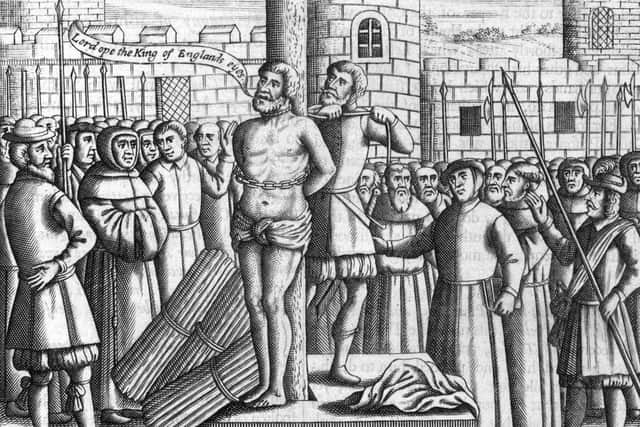Book review: The Word: On The Translation Of The Bible, by John Barton
There is an Italian phrase “traduttore, traditore”, and a French phrase, “traduire, c’est trahir”, both of which roughly convey the same meaning: to translate is to betray (or traduce, or is a treason). These might seem like questions for linguists and those interested in semantics – questions like “does driech have an equivalent in English?” – but when you are translating the Bible it’s a rather more high stakes situation. John Barton is one of our leading historians of religion: his A History Of The Bible is exceptional, as is Ethics In Ancient Israel. By one of the coincidences that intrigue me, he, like Peter Davidson whose poetry I reviewed last week, is a Fellow of Campion Hall in Oxford. Although this book is specifically about the translation of the Bible, it ought to be of interest to anyone interested in what we mean by our words.
At the beginning of Goethe’s Faust, the scholar is puzzling over the best word to convey the Greek “logos”, used at the beginning of the Gospel of St John and most usually translated as “the Word”. It does not seem coincidental that almost immediately he is visited by the demon Mephistopheles. The devil is in the details. To take one, priceless example from a book bejewelled with insight and erudition and compassion, think on this. Barton provides what we might call an interlinear translation from the Hebrew of 1 Samuel 13: “Saul was one year old when he became king, and he reigned for two years over Israel”. Precocious then. Now, if you were to open the King James Version, you would get “Saul had reigned one year, and when he had reigned two years…” If you opened the New English Bible, lo and behold, it is “Saul was 50 years old when he became king”, and turning to the Revised English Bible, he is 30. None of these are translations, but inferences. At least the Revised New Jerusalem Bible admits the problem and has “Saul was … years old”. Barton says it is a “small matter, of little concern to all but a few.” But is shows precisely what a minefield this is. Does a translator have the right to “correct” the text?
Advertisement
Hide AdBarton begins with a distinction which is both useful and problematic, that of the difference between functional translation and formal translation. Put simply, functional is about (what we think) the meaning is, and rendered as if the original author were writing in our language (whatever that is). Formal translation seeks to make the nuance and syntax of the source text evident, even if this means it is less comprehensible. He does at one point say that if there were a perfect formal translation from Hebrew to English, we should read it right to left. To his great credit, Barton outlines both approaches, lists their virtues and then raises what counter-theses might be considered. This is academia as very careful tightrope walking and there is no perceptible safety net. There are always aesthetic questions. A translator friend once grumped to me that parts of the novel he was translating were deliberately badly written, and he had to decide how to render that in an un-gauche fashion.


This book is not in any way a polemic – no fits of pique about why the King James version is the “proper” Bible. It is, however, minatory to zealots of every stripe, whether traditionalist or evangelical. In good Aristotelian form, he advocates a middle course; better still, horses for courses. Sometimes one translation is appropriate, sometimes another. Blended versions that aim for keeping the core message alongside a sense of the difference of the original are highly recommended, particularly those of Robert Alter.
The final chapter intrigued me most, as it is a defence of the deuterocanonical or Apocryphal texts. As he explains, for many Israelites, outside of the Temple, their holy books were in Greek. As a teenager, I recall finding a Bible with the Apocrypha and thought I had found HP Lovecraft’s Necronomicron. The Bible had more books? So these must be secret, clandestine and possibly dangerous books! Barton makes a convincing argument that these books are an important bridge between the Old and New Testaments, between the Torah and the Gospel.
Those who insist on the “right” version of the Bible would do well to remember they are reading a Hebrew text, translated into Greek, translated into Latin, turned into English, revised continually and as the King James has it, humbly to “make a good one better”. I learned a lot from this book, and am still wryly amused that some Bibles, in countries without figs, translate figs as bananas. As Barton says, there is little evidence that Jesus ever ate a banana. Barton is not didactic, nor preachy. It is also a delight that in the Scots translation of the New Testament, Satan speaks in RP English. Maybe not a theological point.
The Word: On The Translation Of The Bible, by John Barton, Allen Lane, £25.